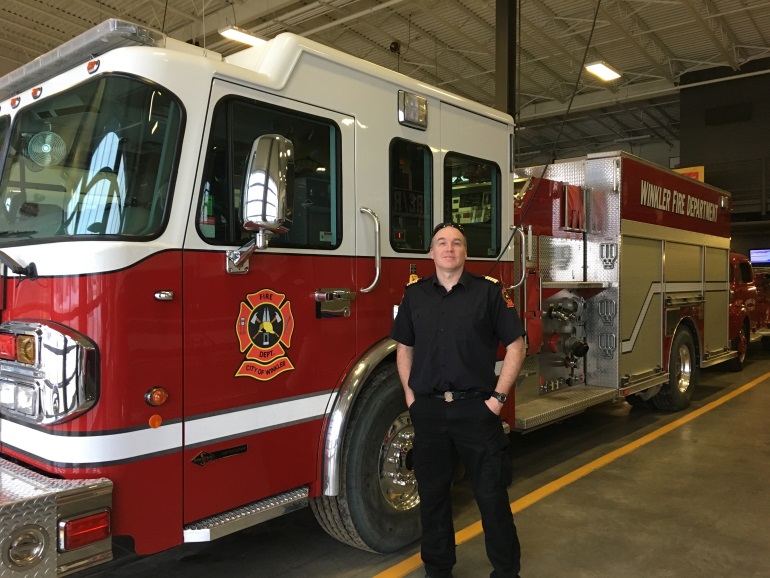In its yearly call report, the Winkler Fire Department detailed some positive stats.
Not only were overall calls down in 2017 from 2016, the department also boasted some impressive numbers regarding response times.
Fire Chief Richard Paetzold explains the department follows "1720" guidelines outlined by the National Fire Protection Association, which is specifically a set of standards for response times for paid/on-call volunteer departments, like Winkler's. The response time standard under the 1720 guidelines is a response time of 9 minutes in the City of Winkler and 14 minutes for rural calls.
"We're happy to report that we're well under 5 minutes in the city, and under 7 minutes for the R.M. of Stanley," said Paetzold. "That's the first arriving fire department vehicle. So that would be our command vehicles on scene."
Paetzold said those in the command vehicle "size up" the situation and come up with a plan, therefore allowing the first fire truck on scene to get straight to work upon arrival. By having a command vehicle going ahead, Paetzold said it saves the lead officer minutes of valuable time of assessing the situation once on the scene with their crew. "We feel we get water on the fire much faster by having this kind of system."
In addition, in the event of blocked roads or poor road conditions, especially on rural roads in the spring, Paetzold said having a command vehicle go ahead of the fire crews allows them to alert them if an alternate route is needed to get to a scene.
2017 also saw the Winkler Fire Department respond to fewer calls. Overall, calls were down about 2% from the year previous, to 160 calls.
However, the City of Winkler itself saw a 10% increase in call volume from the previous year to 113. This was attributed to an increase in fire incidents, motor vehicle accidents, and carbon monoxide incidents, even though there were significantly fewer false alarms.
Paetzold noted the majority of the fire calls in 2017, were cooking-related incidents.
There were a total of 33 false alarm calls in 2017, which is 28 fewer than 2016 "We worked really hard to do that," said Paetzold. Paetzold said false alarms not only take firefighters away from work but also possibly tie up resources where they're not needed when they are needed somewhere else.
The RM of Stanley emergency call volume decreased 33% to 40 calls. This was attributed to fewer fire incidents and false alarms.
There were 7 Mutual Aid calls in 2017, the same number as in 2016.


















